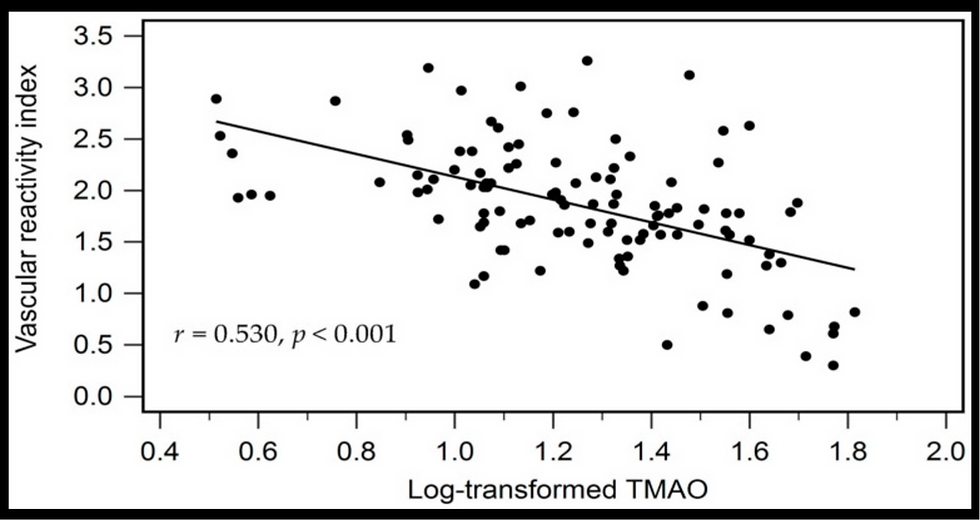Short-term weight loss reverses obesity-induced microvascular endothelial dysfunction.
- heartlung
- Jan 16, 2023
- 2 min read
Geroscience. 2018 10.1007/s11357-018-0028-9. [Epub ahead of print]
Short-term weight loss reverses obesity-induced microvascular endothelial dysfunction.
Csipo T1,2, Fulop GA1,2, Lipecz A1,3, Tarantini S1, Kiss T1, Balasubramanian P1, Csiszar A1,4, Ungvari Z1,4,5, Yabluchanskiy A6.
Author information 1Reynolds Oklahoma Center on Aging, Department of Geriatric Medicine, University of Oklahoma Health Sciences Center, 975 NE 10th Street, BRC 1315, Oklahoma City, OK, 73104, USA.2Division of Clinical Physiology, Faculty of Medicine, University of Debrecen, Debrecen, Hungary.3Department of Ophthalmology, Josa Andras Hospital, Nyiregyhaza, Hungary.4Department of Medical Physics and Informatics, University of Szeged, Szeged, Hungary.5Department of Pulmonology, Semmelweis University, Budapest, Hungary.6Reynolds Oklahoma Center on Aging, Department of Geriatric Medicine, University of Oklahoma Health Sciences Center, 975 NE 10th Street, BRC 1315, Oklahoma City, OK, 73104, USA. andriy-yabluchanskiy@ouhsc.edu.
Abstract
Obesity is one of the major risk factors for cardiovascular diseases and its prevalence is increasing in all age groups, with the biggest impact observed in middle-aged and older adults. A critical mechanism by which obesity promotes vascular pathologies in these patients involves impairment of endothelial function. While endothelial dysfunction in large vessels promotes atherogenesis, obesity-induced microvascular endothelial dysfunction impairs organ perfusion and thereby is causally related to the pathogenesis of ischemic heart disease, chronic kidney disease, intermittent claudication, exercise intolerance, and exacerbates cognitive decline in aging. Reduction of weight via calorie-based diet and exercise in animal models of obesity results in significant improvement of endothelial function both in large vessels and in the microcirculation, primarily due to attenuation of oxidative stress and inflammation. Clinical data on the protective effects of weight loss on endothelial function is limited to studies of flow-mediated dilation assessed in brachial arteries. Currently, there is no guideline on testing the effects of different weight management strategies on microvascular endothelial function in obese patients. Here, we provide proof-of-concept that weight loss-induced improvement of microvascular endothelial function can be reliably assessed in the setting of a geriatric outpatient clinic using a fast, reproducible, non-invasive method: laser speckle contrast imaging-based measurement of endothelium-dependent microvascular responses during post-occlusive reactive hyperemia tests. Our study also provides initial evidence that short-term weight loss induced by consumption of a low-carbohydrate low-calorie diet can reverse microvascular endothelial dysfunction associated with obesity.
KEYWORDS: Aging; Endothelial function; Obesity; Weight loss
Endothelial Function Scientific Update Sponsored by Endothelix Inc. Click here to view previous updates.
![Lipoprotein(a) levels predict endothelial dysfunction in maintenance hemodialysis patients: evidence from [VENDYS] vascular reactivity index assessment](https://static.wixstatic.com/media/dac531_5285607cc591409a9d83746f042af7c6~mv2.png/v1/fill/w_980,h_980,al_c,q_90,usm_0.66_1.00_0.01,enc_avif,quality_auto/dac531_5285607cc591409a9d83746f042af7c6~mv2.png)


Comments